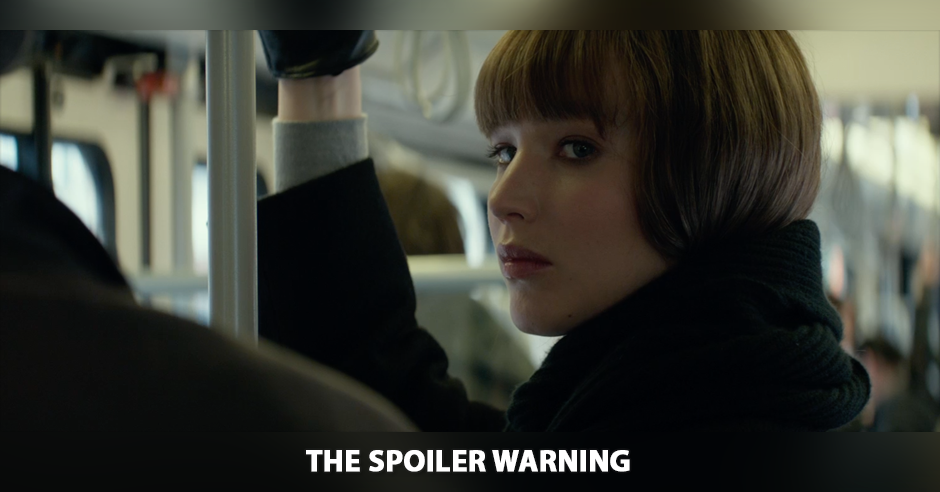It’s tempting to compare Red Sparrow (3/5) to the better things it recalls: the chilly-slick protagonist of Bond, the pulp sensuality of Verhoeven, the trying-too-hard Soviet intrigue of Bridge of Spies, the guy-who-looks-like-Putin-ness of whatever else Matthias Schoenaerts was in, the quantum superposition of Slavic accents of Kate Winslet in Danny Boyle’s Jobs. But the one I can’t shake is The Girl With The Dragon Tattoo. Like Dragon, Sparrow is a competently-constructed, gloomy, blood-spattered mood piece; a largely forgettable script elevated by a talented cast and risk-taking director, packed with riveting scenes that feel substantive even as they build to nowhere. Francis Lawrence is absolutely no David Fincher, and Jennifer Lawrence is (come at me, haters) no Rooney Mara, but grading on the Mockingjay curve they now feel awfully close — it’s the most captivating either have been in some time. It’s also, unfortunately, the most exploitative; this is yet another grisly film about the mingling of violence and sexuality, directed by men, based on books by men, enacted by unsmiling women in leering focus. And while that may well be an intentional choice, even a genre unto itself (see my own “pulp sensuality” descriptor), there’s some unshakable grossness to the dynamic. One that stuck with me longer than any double-crossing twist. This isn’t a bad movie by any means: Red Sparrow is well-paced, stylish, and a solid showcase of Jennifer Lawrence’s acting chops (if not dialect coach). Its hazy, unnerving tone is perfect for espionage thrillers. Its unnerving subtext, less so.
Chris and I talk Oscars, shape-shifting accents, and deviations from the book in Episode 492:
